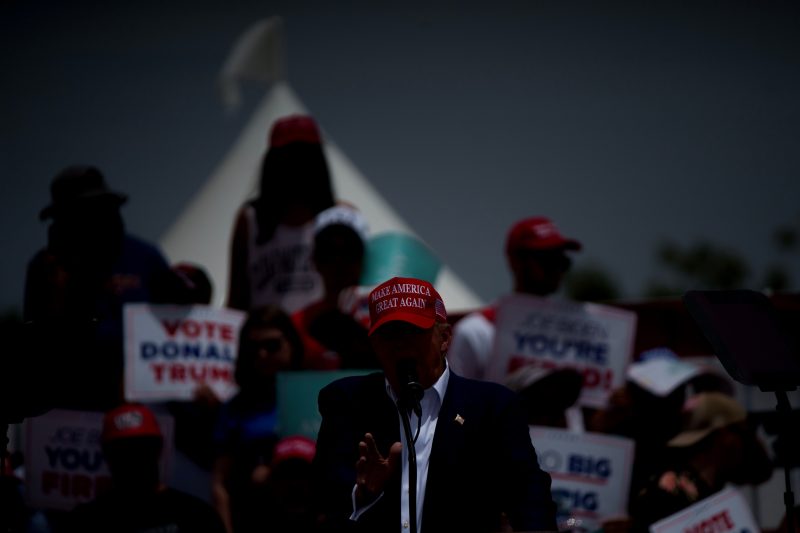In recent times, the political landscape in the United States has become increasingly polarized, with fervent supporters and ardent critics on both sides of the spectrum. The phenomenon of pro-Trump extremists staunchly believing in his inevitable victory in the upcoming elections is a troubling trend that has garnered attention and concern from various quarters. The conviction held by these individuals that Donald Trump is certain to win re-election is not only indicative of their unwavering loyalty but also highlights the risks associated with such a mindset.
One of the primary dangers of this unwavering belief in Trump’s victory lies in the potential for disillusionment and unrest if the election results do not align with their expectations. In the event of an electoral defeat for Trump, these extreme supporters may react with shock, anger, and potentially violence, fueled by a sense of betrayal and injustice. This could lead to civil unrest, protests, and even acts of domestic terrorism, posing a significant threat to public safety and democratic norms.
Furthermore, the echo chambers created by pro-Trump extremists, where dissenting opinions are suppressed and alternate viewpoints are dismissed, contribute to the dissemination of misinformation and conspiracy theories. This can further exacerbate divisions within society, erode trust in institutions, and undermine the democratic process. By rejecting facts and evidence that do not align with their preconceived notions, these individuals contribute to a climate of distrust and polarization that hampers constructive dialogue and debate.
The rise of pro-Trump extremism also brings to the fore concerns regarding the influence of fringe ideologies and extremist groups on mainstream political discourse. By amplifying extreme viewpoints and embracing radical tactics, these individuals risk normalizing dangerous behaviors and ideas that have the potential to undermine the foundations of democracy. The blurring of boundaries between legitimate political engagement and extremist activism poses a challenge to the democratic principles of free speech, tolerance, and pluralism.
Moreover, the fervent belief in Trump’s victory among pro-Trump extremists can have far-reaching implications for the political landscape beyond the upcoming elections. By refusing to accept the possibility of defeat, these individuals may further entrench themselves in divisive and confrontational tactics, leading to a cycle of escalation that makes compromise and cooperation increasingly difficult. This could further deepen partisan divides, hinder efforts at reconciliation, and perpetuate a climate of political instability and acrimony.
In conclusion, the phenomenon of pro-Trump extremists fervently believing in his inevitable victory in the upcoming elections is a concerning trend that warrants close attention and vigilance. The risks associated with this unwavering mindset, including potential disillusionment, unrest, and the normalization of extremist behavior, highlight the need for a concerted effort to promote dialogue, reason, and respect for democratic norms. By addressing the underlying factors driving this extremism and fostering a culture of tolerance and inclusivity, we can work towards a more cohesive and resilient democracy that upholds the values of freedom, justice, and equality for all.
